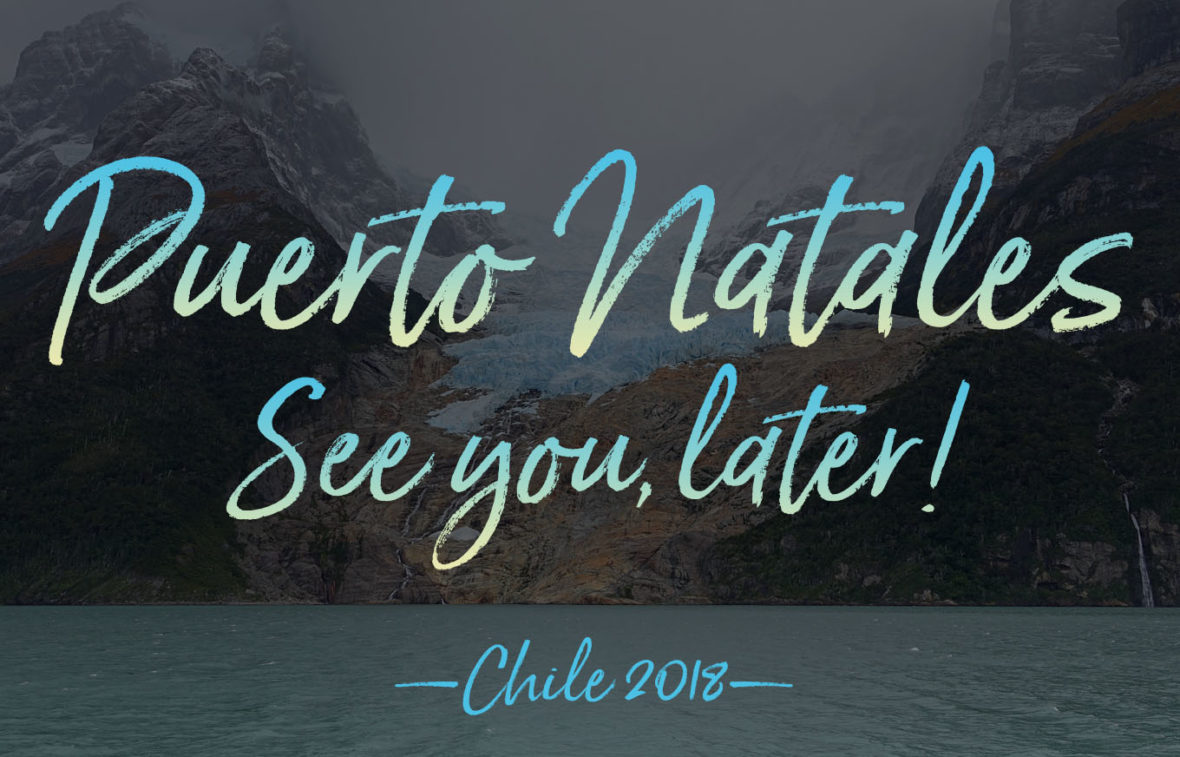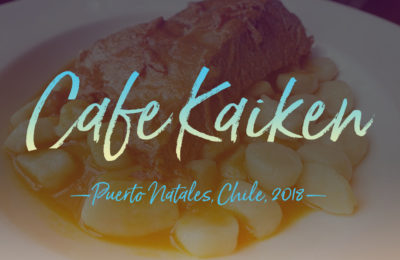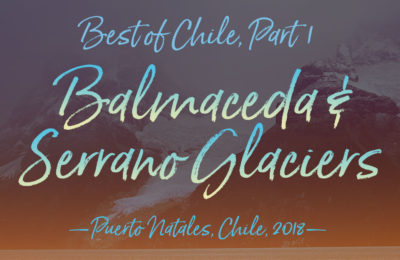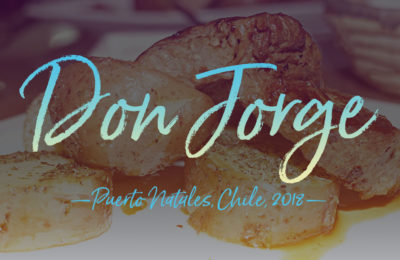See you later, Puerto Natales, Chile 🇨🇱
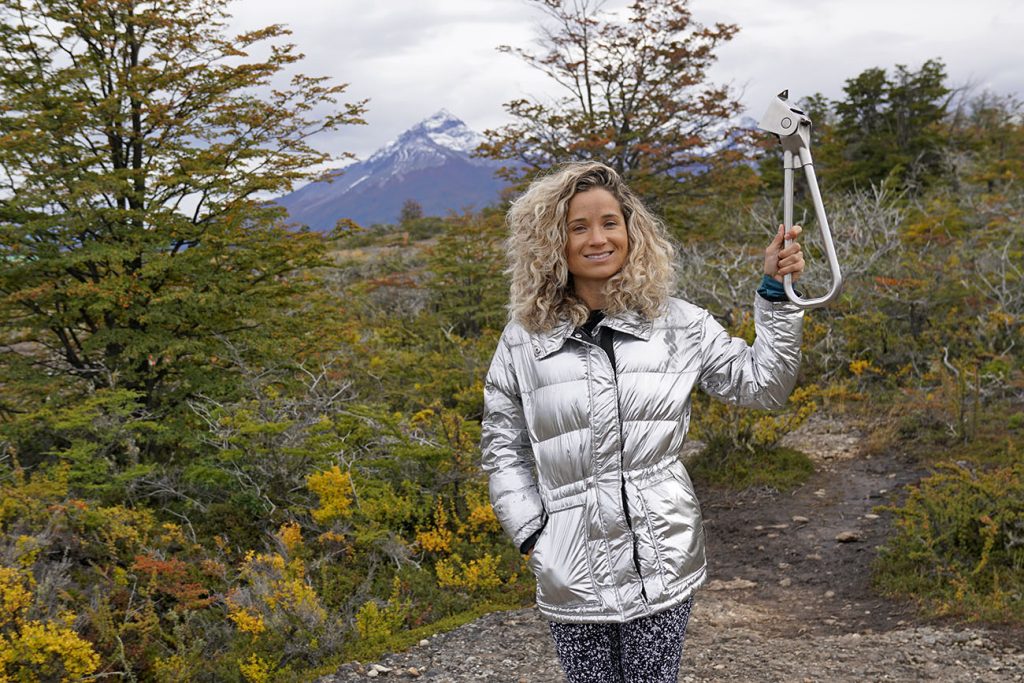
Emille from NY See You Later holding the NYC Subway Handle in Torres del Paine, Puerto Natales, Chile
Here are tips for planning your visit to Puerto Natales, Chile, recommended by Emille, from NY See You Later.
The breathtaking Chilean Patagonia lies in the southernmost province of Chile—el Última Esperanza. It is one of four provinces that comprise the Magallanes and Antarctica Chilean Region. Puerto Natales, the lone city in the province, is the transportation hub for the Torres del Paine National Park.
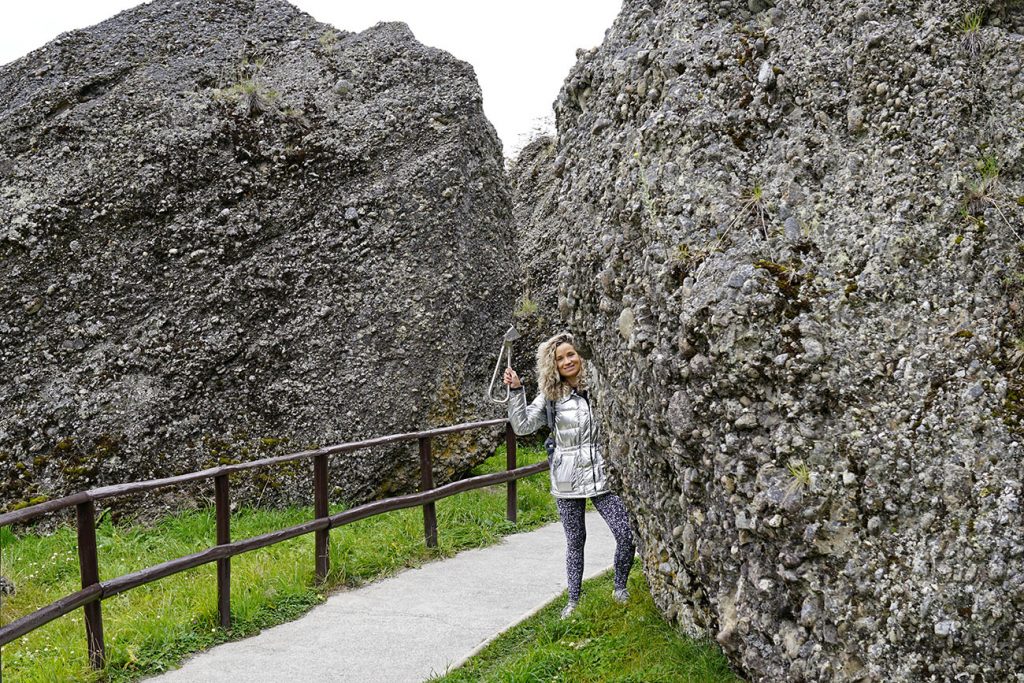
Emille entering the Cueva del Milodón, with the NYC Subway Handle, of course
🎓 History
Chilean settlers were attracted to the region that was rich with sheep and cattle—the same reason that interested European immigrants before them—although tourism is now the primary industry.
🏞️ National Park
National Geographic selected the Torres del Paine National Park as the “fifth most beautiful place in the world,” and TripAdvisor calls it “the 8th Wonder of the World.”
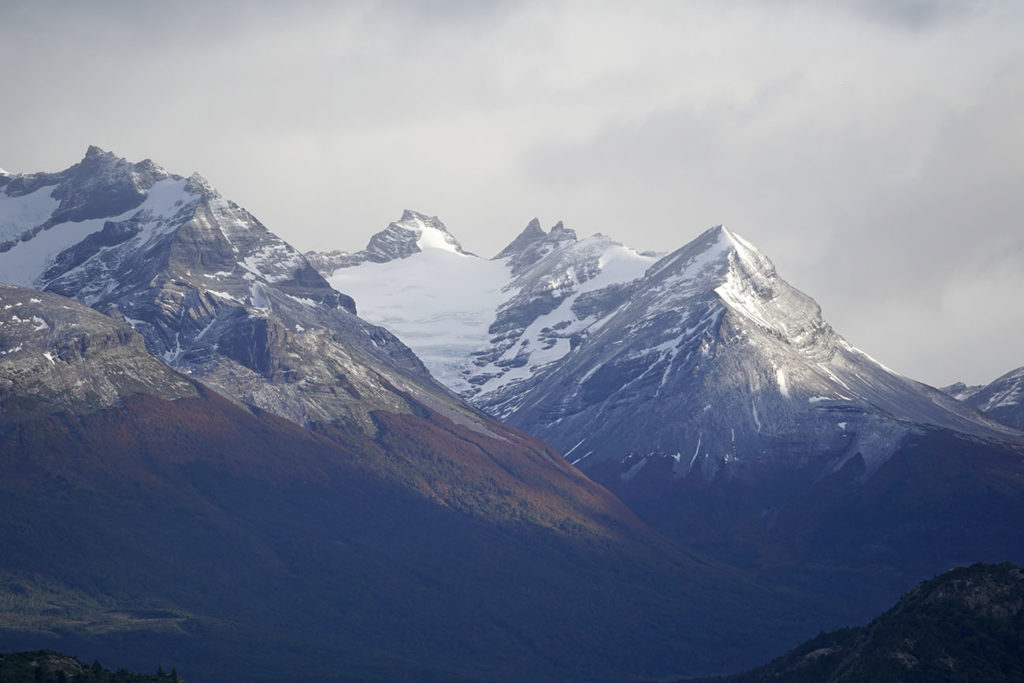
Torres del Paine in Puerto Natales, Chile
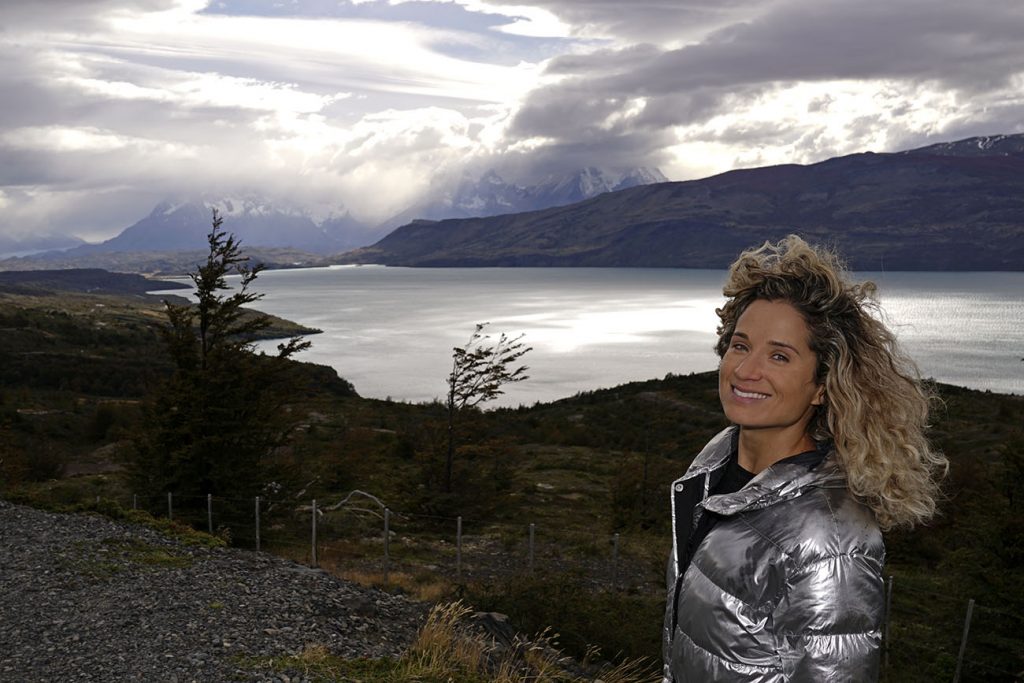
Emille from NY See You Later admiring the Torres del Paine landscape
With the growing renown worldwide of this national park, Puerto Natales is establishing itself as the primary “base camp” for excursions to this national treasure. The Spanish word “torres” translates to “towers” and “paine” means “blue” in ancient Teheulche Indian, so “Blue Towers” aptly refers to the magnificent blue and grey mountains that are the main attraction.
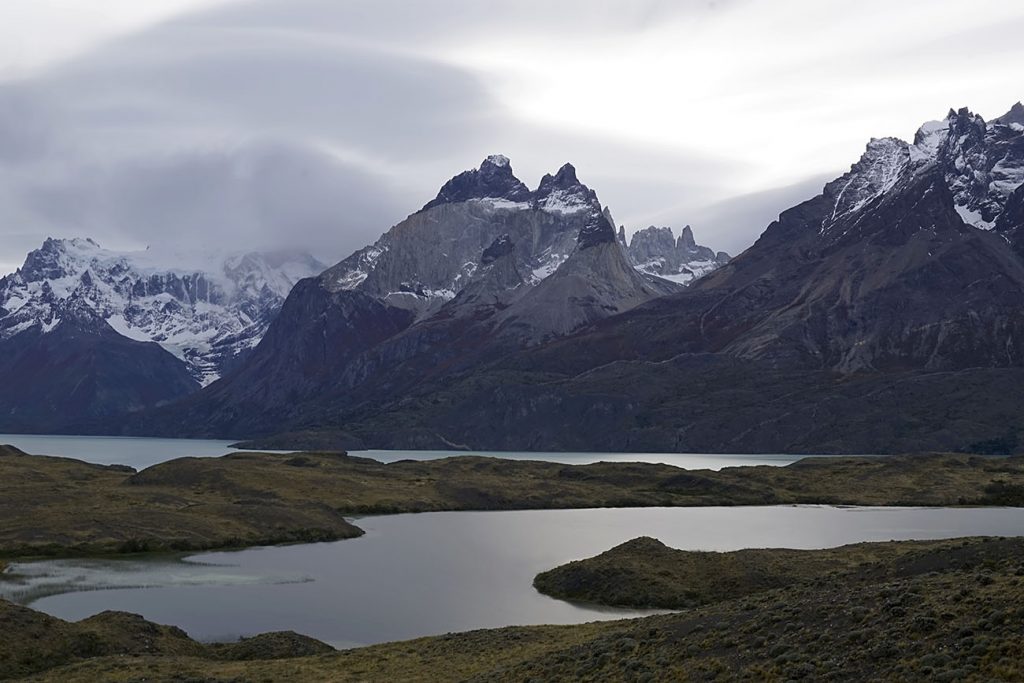
The majestic Torres del Paine in Puerto Natales, Chile
The “Central Tower,” or “Torre Central,” of this Unesco World Biosphere Reserve stands 2,800 meters (9,186 feet) high, while the “Torre Sur” or “South Tower” at 2,850 meters (9,350 feet) holds a slight vertical advantage. The “North Tower” or “Torre Norte” rounds out the ensemble at 2,248 meters (7,375 feet).
This National Park is a section of the “National System of Protected Forested Areas of Chile,” or “Sistema Nacional de Áreas Silvestres Protegidas del Estado de Chile,” en Español. With more than 16 hours of daylight in the southern hemisphere during spring and summer, the best time to visit third largest ice field on the planet is from October to April.
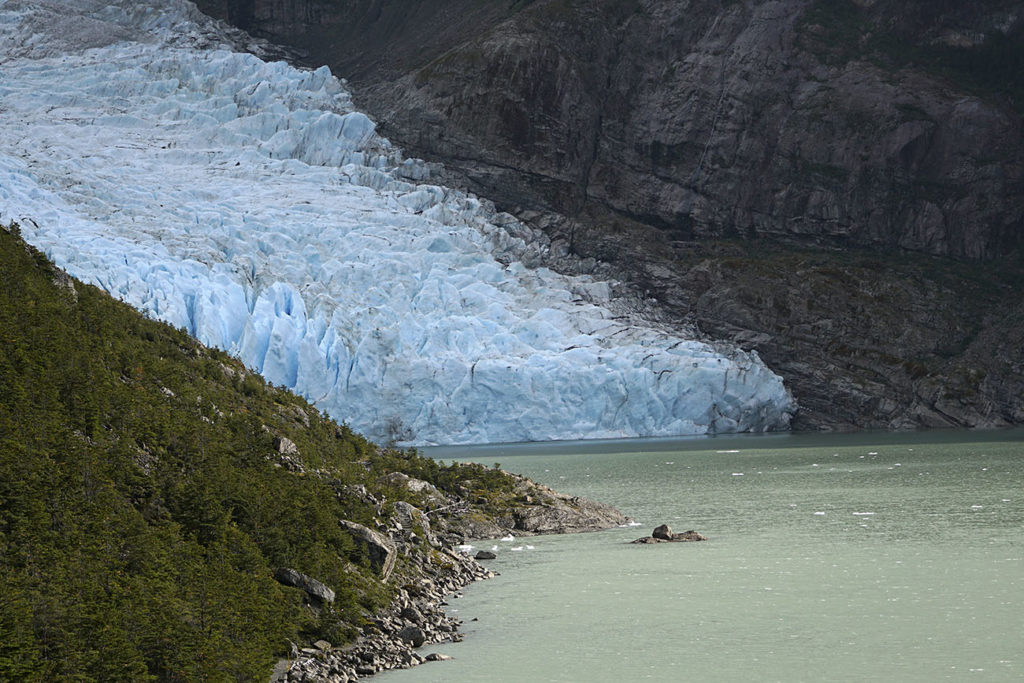
Serrano Glacier, Puerto Natales, Chile
Located in the Andes Mountains between Chile and Argentina, is the Southern Patagonian Ice Field, which features the Serrano, Grey, Pingo and Tyndall glaciers. Called the “Campo de Hielo Sur” en Espanol, it is the world’s second largest contiguous extrapolar ice field.
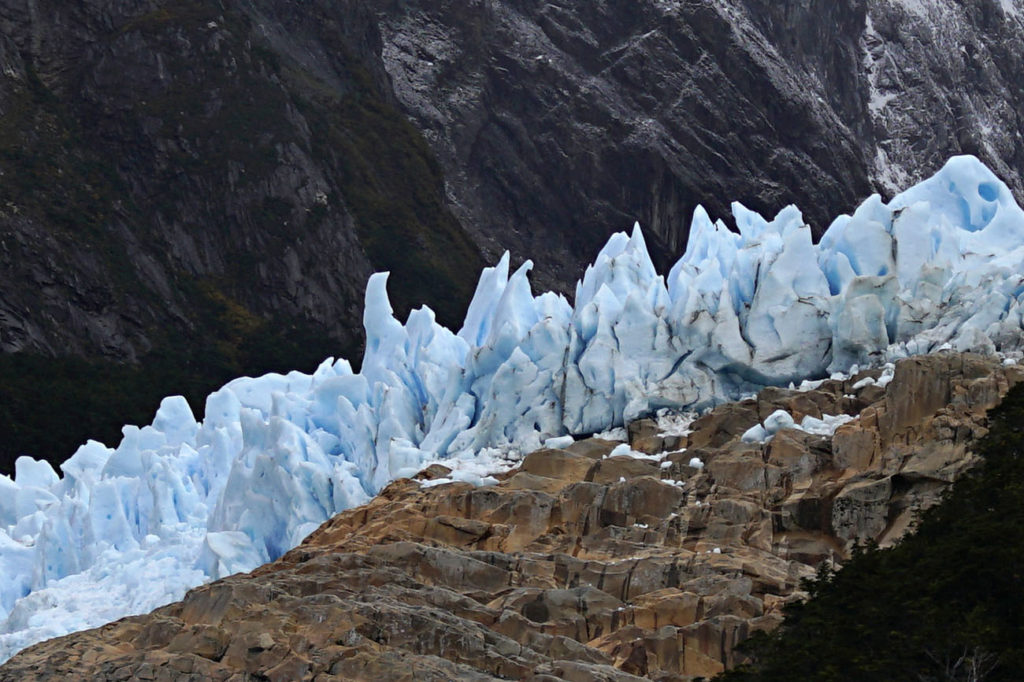
Serrano Glacier, Puerto Natales, Chile
🐻 Natural Monument
The Cueva del Milodón Natural Monument lies a mere 15 miles (24 kilometers) from Puerto Natales. The cave features a massive statue of what appears to be a giant bear standing on its hind legs with menacing, outstretched arms, but the name “Milodón” means “giant ground sloth.” The cave is famous for the 1895 discovery of skin, bones and other parts of the extinct behemoth. The breathtaking area includes the Alacalufes National Reserve and the stunning Bernardo O’Higgins National Park.
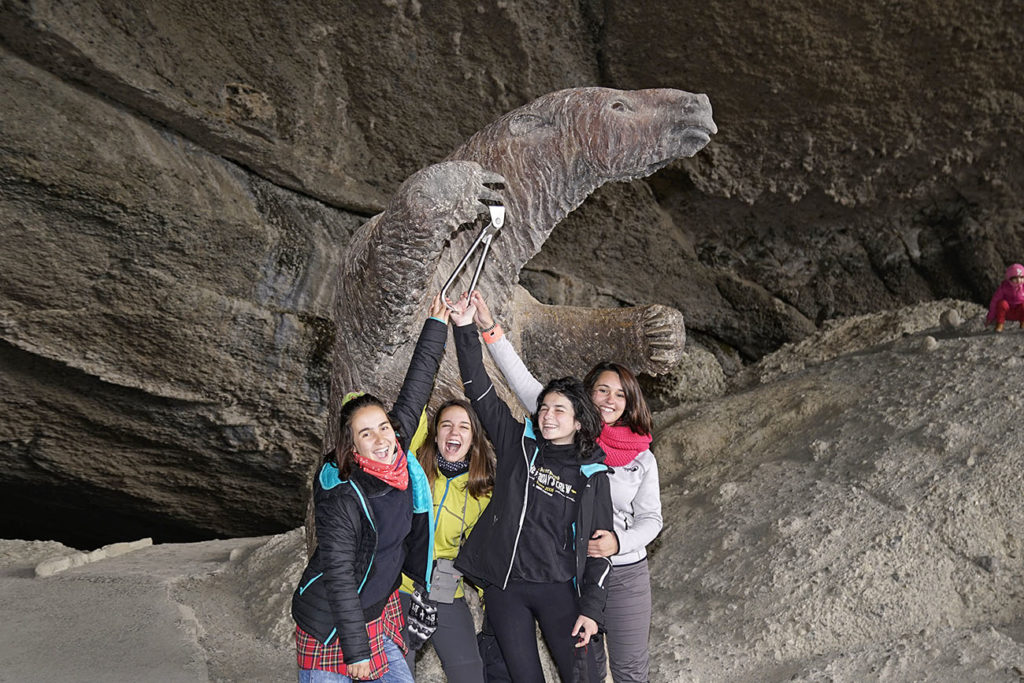
Cueva del Milodón Natural Monument in Torres del Paine, Chile, with new NYC Subway Handle amigas
📆 When To Go
The best time to visit Patagonia is during the southern hemisphere’s summer months, from mid-November to late March. The summer offers the best conditions for extended trekking in Torres del Paine and Tierra del Fuego.
💺 How to Get There
Puerto Natales will be your first stop, as there are no direct buses from Punta Arenas to Torres del Paine National Park. Purchase your bus ticket to Puerto Natales in advance, so that you can take advantage of the free shuttle service from the airport in Punta Arenas to the downtown bus terminal.
🚌 Bus Companies
Buses Sur As of 2016, their schedule from Punta Arenas to Puerto Natales was 10:00, 12:30, 15:00, 17:15, and 19:00. The cost is approximately CLP $7,600 (USD $11) for a one-way ticket.
Buses Fernandez As of 2016, their schedule from Punta Arenas to Puerto Natales was 8:00, 9:00, 13:00, 14:30, 17:00, 18:30, 20:00. The cost is approximately CLP $7,000 (USD $10) for a one-way ticket.
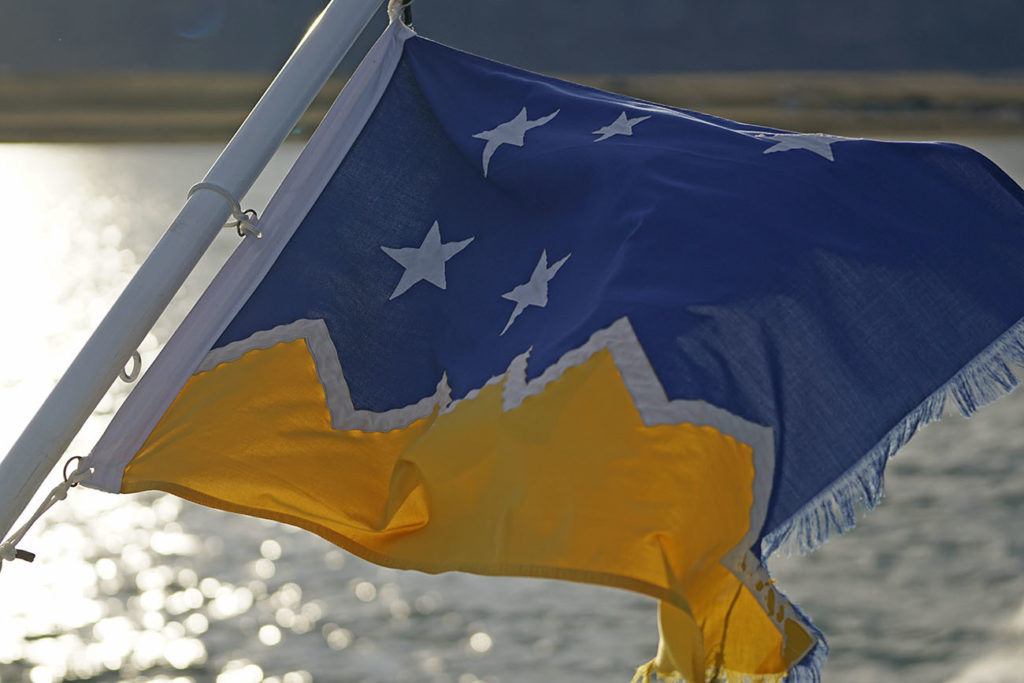
The Flag of Magallanes and the Antártica Chilena Region
🏡 Where to Stay
If you’re on a budget, we recommend Airbnb, which we find to have the most affordable offerings and true “locals” experiences, like this one!
Read the reviews on the hostels and hotels to make sure they’re a good fit. Booking.com is a great resource that we frequently use.
🕐 How Long to Stay
Three days would be the minimum to take in the most famous sights. If you want to do some hiking in Patagonia then we recommend at least one week. The weather can be unpredictable, so adding a couple of additional days is a great idea.
🏃 What to do
We recommend starting with a small hike, like the eight-hour “Tour of Del Paine.” If you don’t want to camp or hike we highly recommend a full day tour of Torres del Paine. A “backpacker saver” option would be to take a bus from Bus Sur directly to Torres del Paine and hike Del Paine from there. Please specify that you want to go directly to Del Paine—that’s important.
We loved the Full Day Tour of Torres del Paine provided by Bus Sur, which included The Cueva del Milodón. The fee for the Cueva is $5,000 CLP (Chilean Pesos), or $7.27 USD, whereas admission to the National Park is a bit pricier at $21,000 CLP, or $30.59 USD.
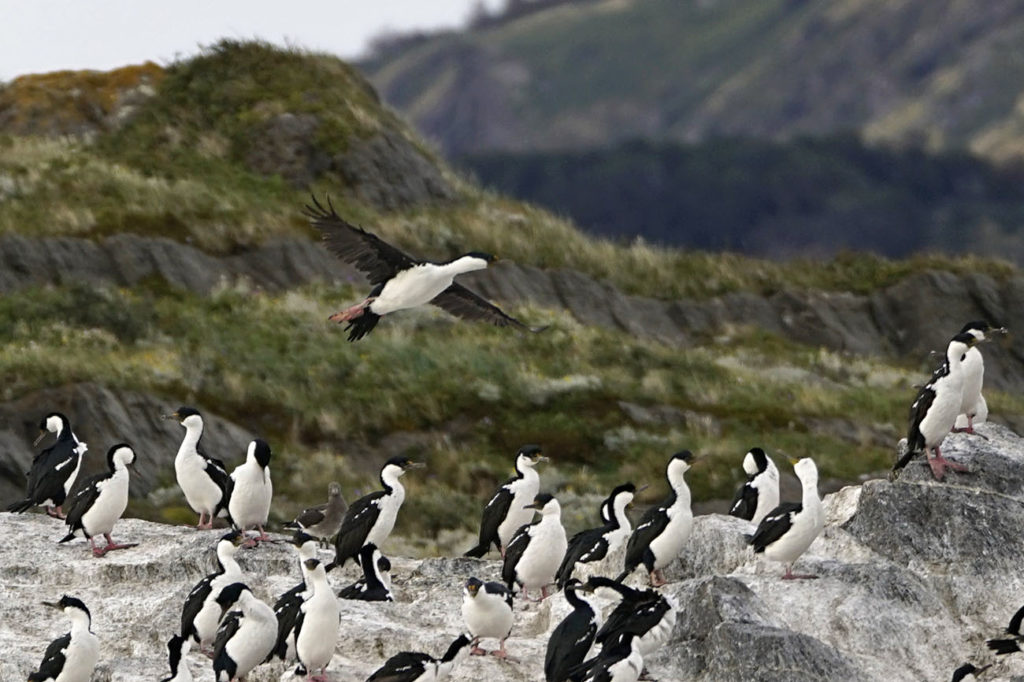
Serrano Glacier Tour, Puerto Natales, Chile, with 21 de Mayo Tours
We highly recommend the Serrano Glacier Cruise by 21 de Mayo Turismo. Purchase directly through them to save money by avoiding the middleman. The tour guide, captain, staff, food, boat and glaciers were first-rate. Please click here for a full review. We recommend sightseeing the city by foot since it’s so small and getting to know the local shops and restaurants.
🥙 Where to eat
Cafe Kaiken owned by Jose, an amazing chef. They start you with warm rosemary bread 🍞, followed by some amazing dishes like salmon with vegetables, steak with gnocchi and crab 🦀 ravioli with balsamic sauce. They also offer a great selection of wines and local beers. The staff is very friendly and the food is an excellent value.
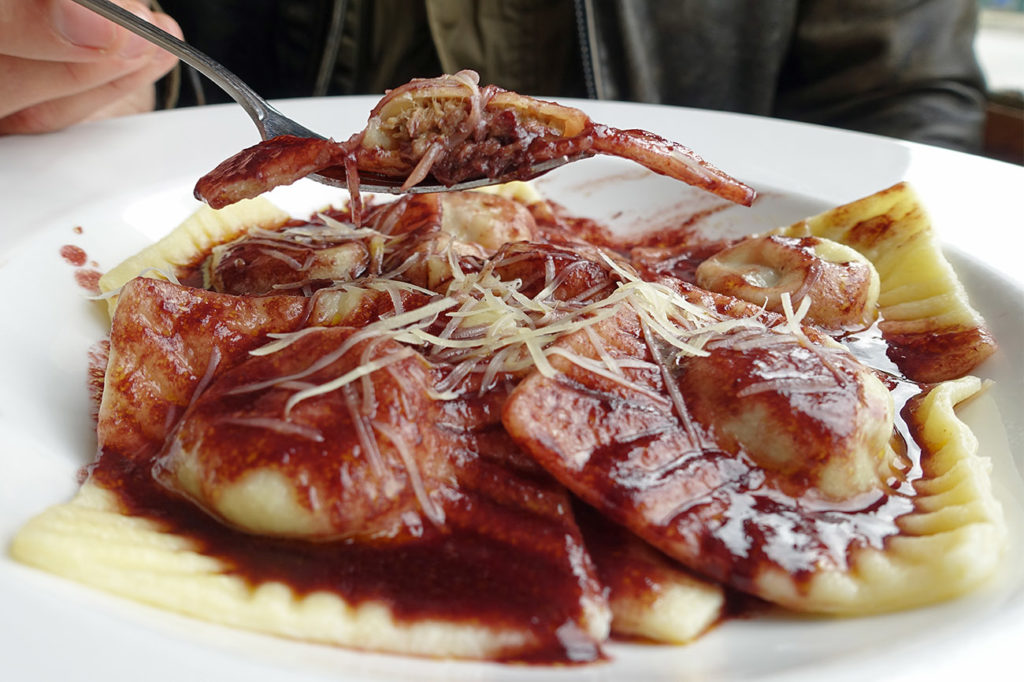
Cafe Kaiken, Puerto Natales, Chile
Don Jorge. If you are looking for an amazing cut of steak, lamb or sausage, buttery wine or fabulous appetizers, this is the place! Chef Jorge and staff take friendliness and professionalism to the next level in this upscale establishment. It was an experience we will never forget. There are several restaurants in Puerto Natales, but these were our favorites.
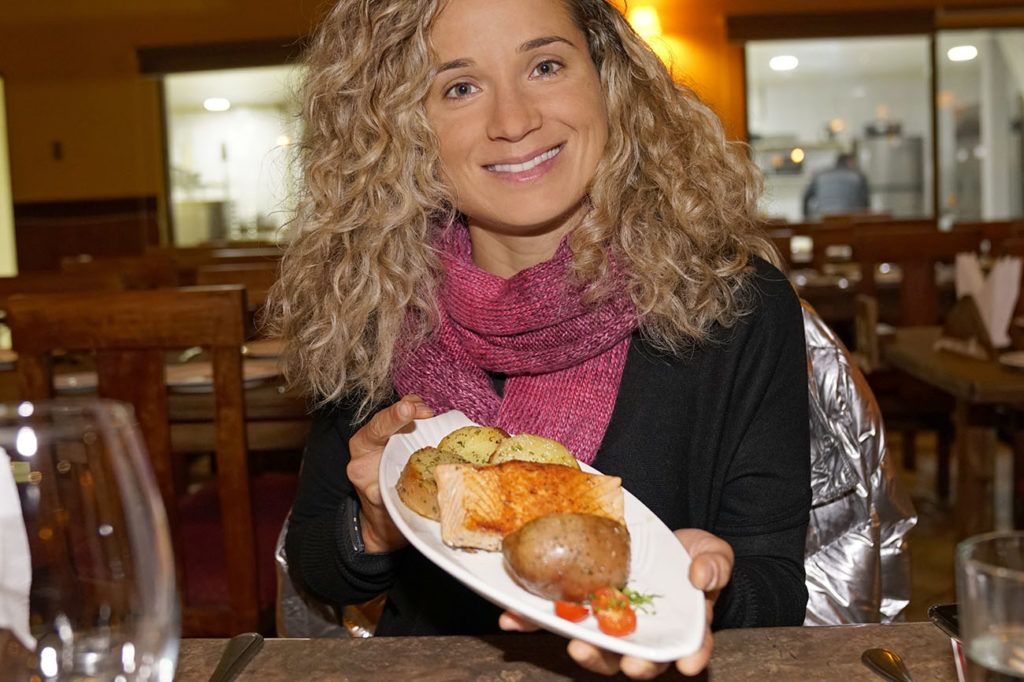
Don Jorge Restaurant, Puerto Natales, Chile
Stay in touch with NY See You Later!
Please follow us on Instagram! @nyseeyoulater


